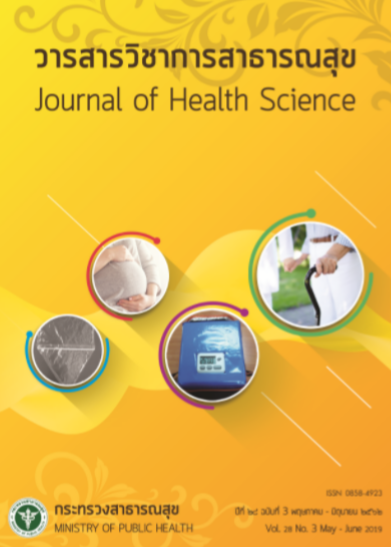Improving Protections of Human Research Volunteers by SIDCER/FERCAP Recognition Program
Keywords:
human research participant protection, recognition program, SIDCER, FERCAPAbstract
Serious violation of human rights in research involving human occurred in Nazi army and elsewhere led to the creation of rules and preventive measures. However, problems still emerged even in the United States where laws required research institutions to establish institutional review board responsible for human research protections as evidenced from an incident of death of a subject in human research in a famous university. Many attempts for human research protection had been made with little success. Later a small group of concerned people was organized under support of WHO’s Special Programme for Research and Training in Tropical Diseases (WHO/TDR) to solve the problem with great success. This article aimed to present the experience in this work which started by the formation of a critical mass of people preparing an operational guidelines for ethics committee that review biomedical research and forming a forum for ethics committee in Asia and Western Pacific. The guideline was accepted and published by WHO. Ethics committees were established in some developing countries in the region. Then a recognition program to improve quality of ethics committees was initiated based on concept of surveying and evaluation. Up to 2019, 250 ethics committees were recognized. Meanwhile a network of recognized ethics committees was formed for continuous improvement. It was a success story. The keys of success include (1) a strategic move started from preparing a development tool which was an operational guideline for ethics committee, (2) establishing forum at regional and national leves to carry out the tasks; and efficiently working in both formal and informal manners which brought about the success and sustainability. The recognized ethics committees in Thailand were well accepted by national authorities, i.e. the National Research Council of Thailand and the Food and Drug Administration in the Ministry of Public Health. The recognition program should be strengthened and expanded, especially in Thailand where the Personal Data Protection Act 2019 has recently been issued to be in line with the international standard.
Downloads
Downloads
Published
How to Cite
Issue
Section
License
Copyright (c) 2019 Journal of Health Science - วารสารวิชาการสาธารณสุข

This work is licensed under a Creative Commons Attribution-NonCommercial-NoDerivatives 4.0 International License.







